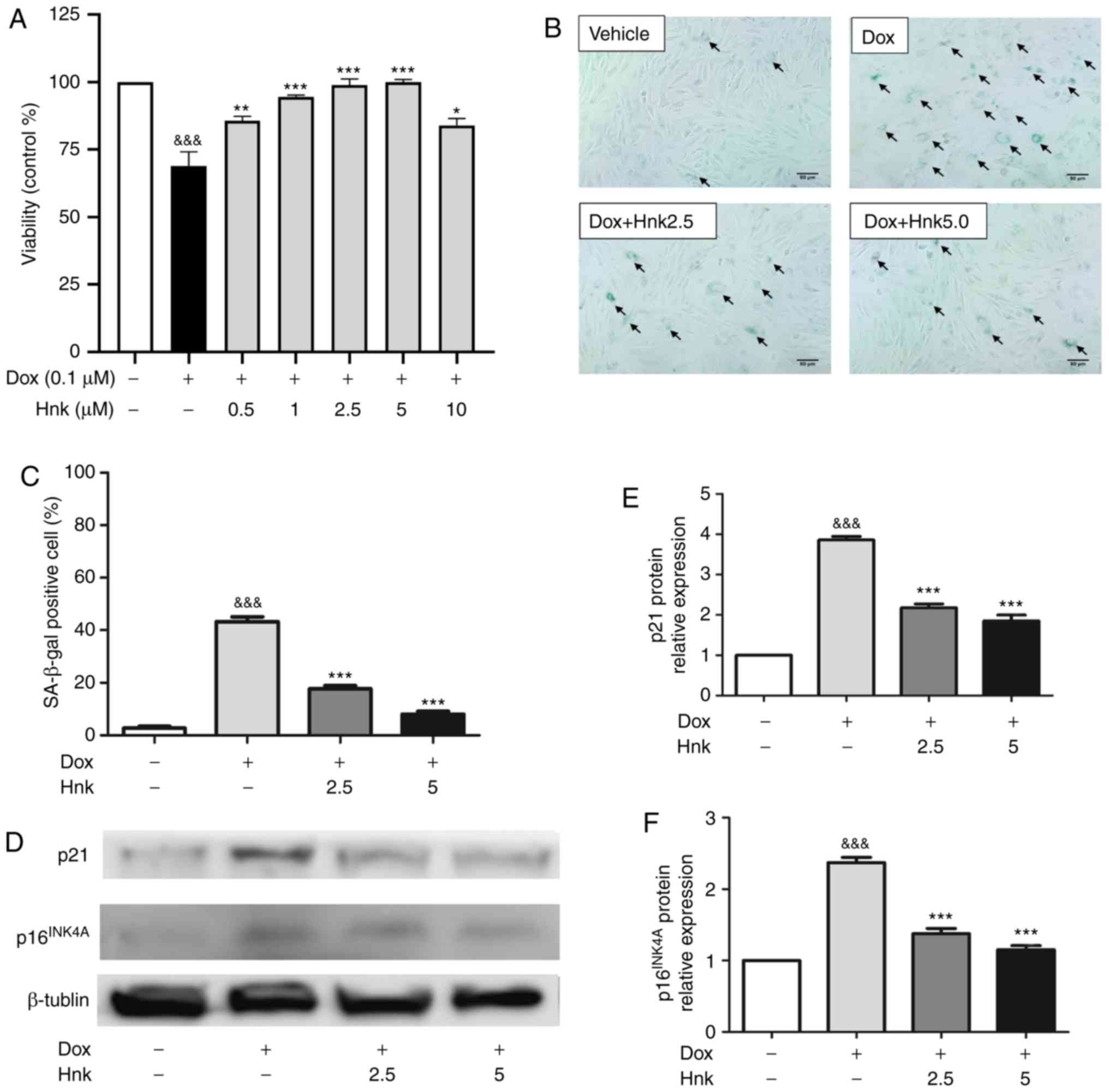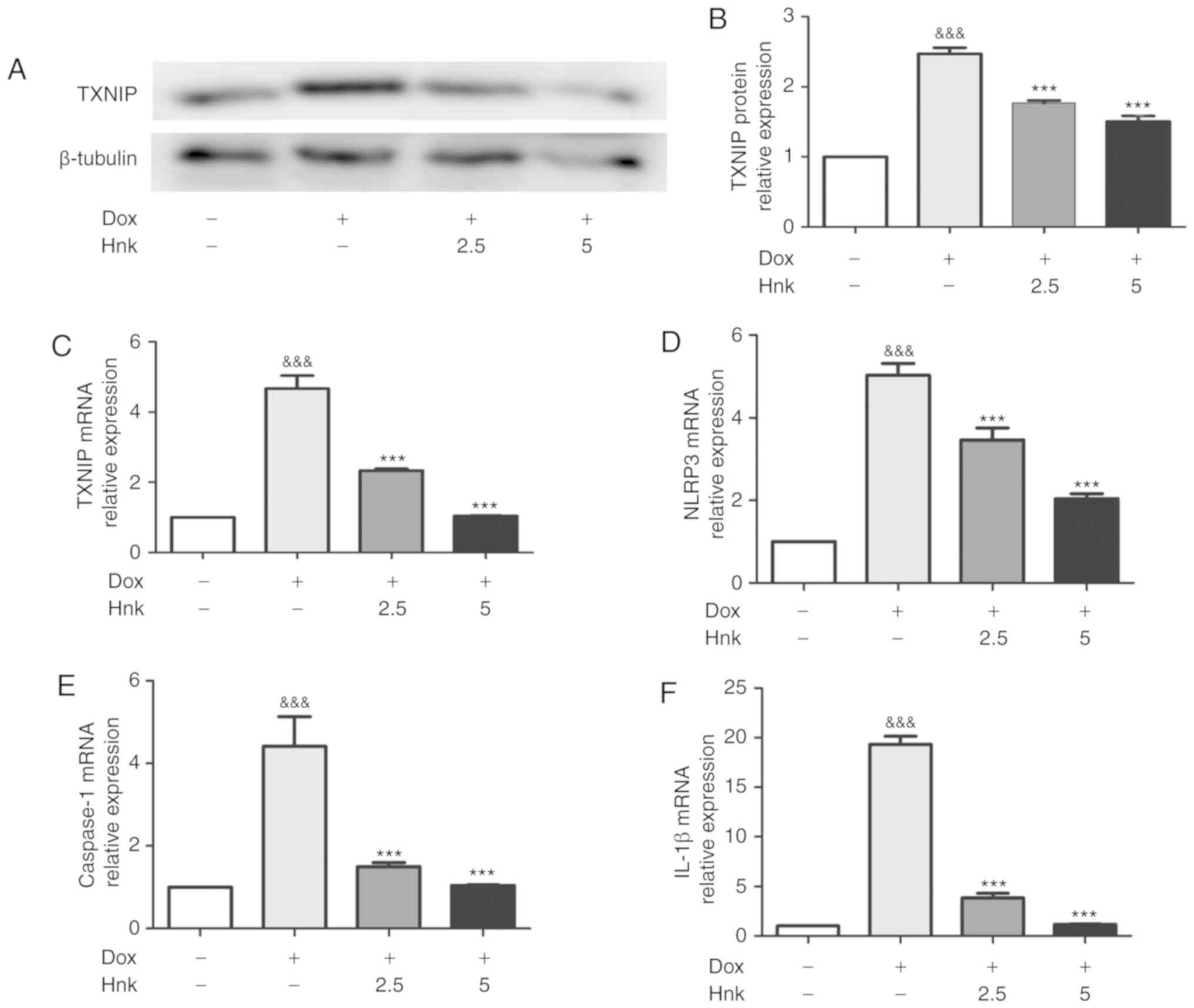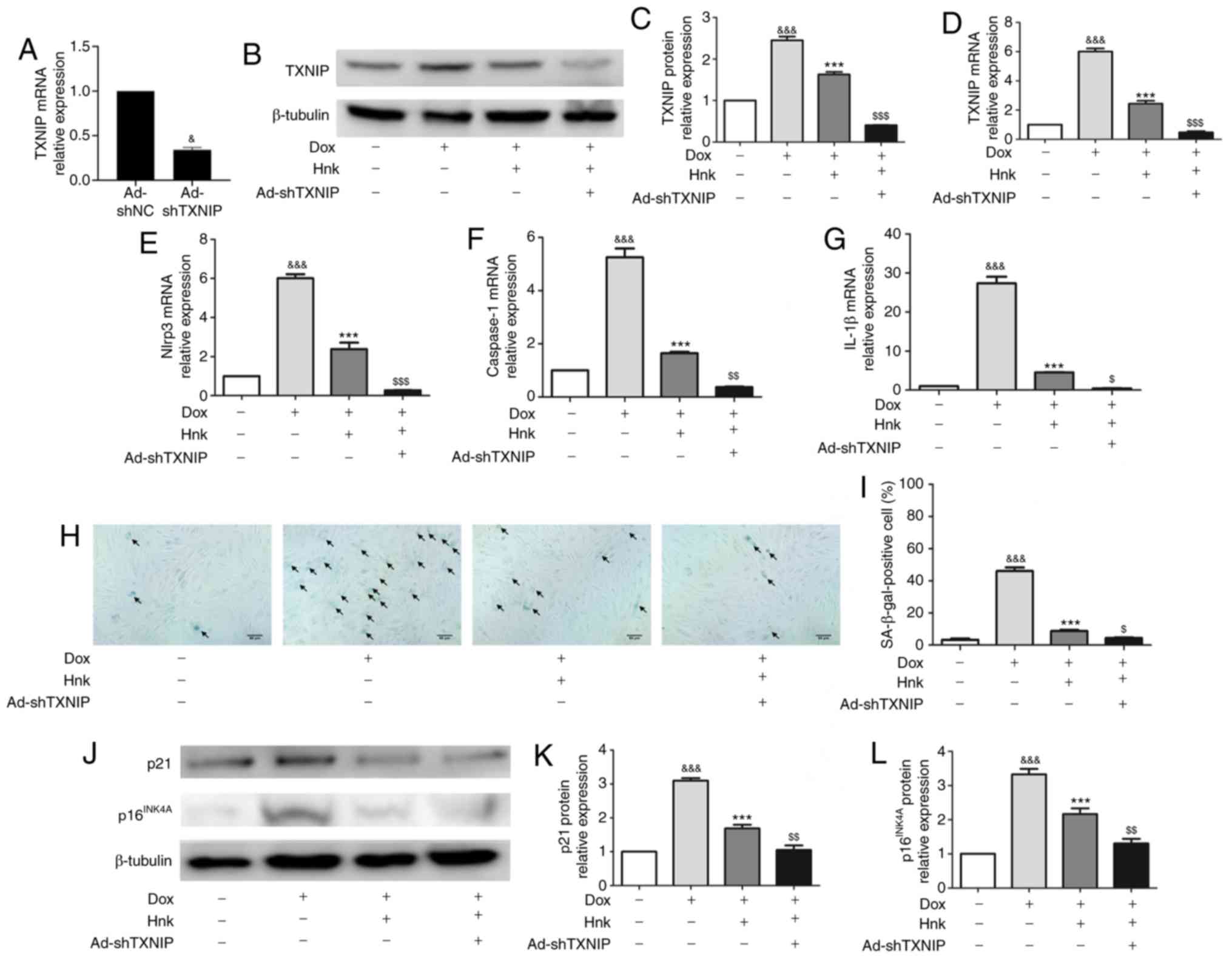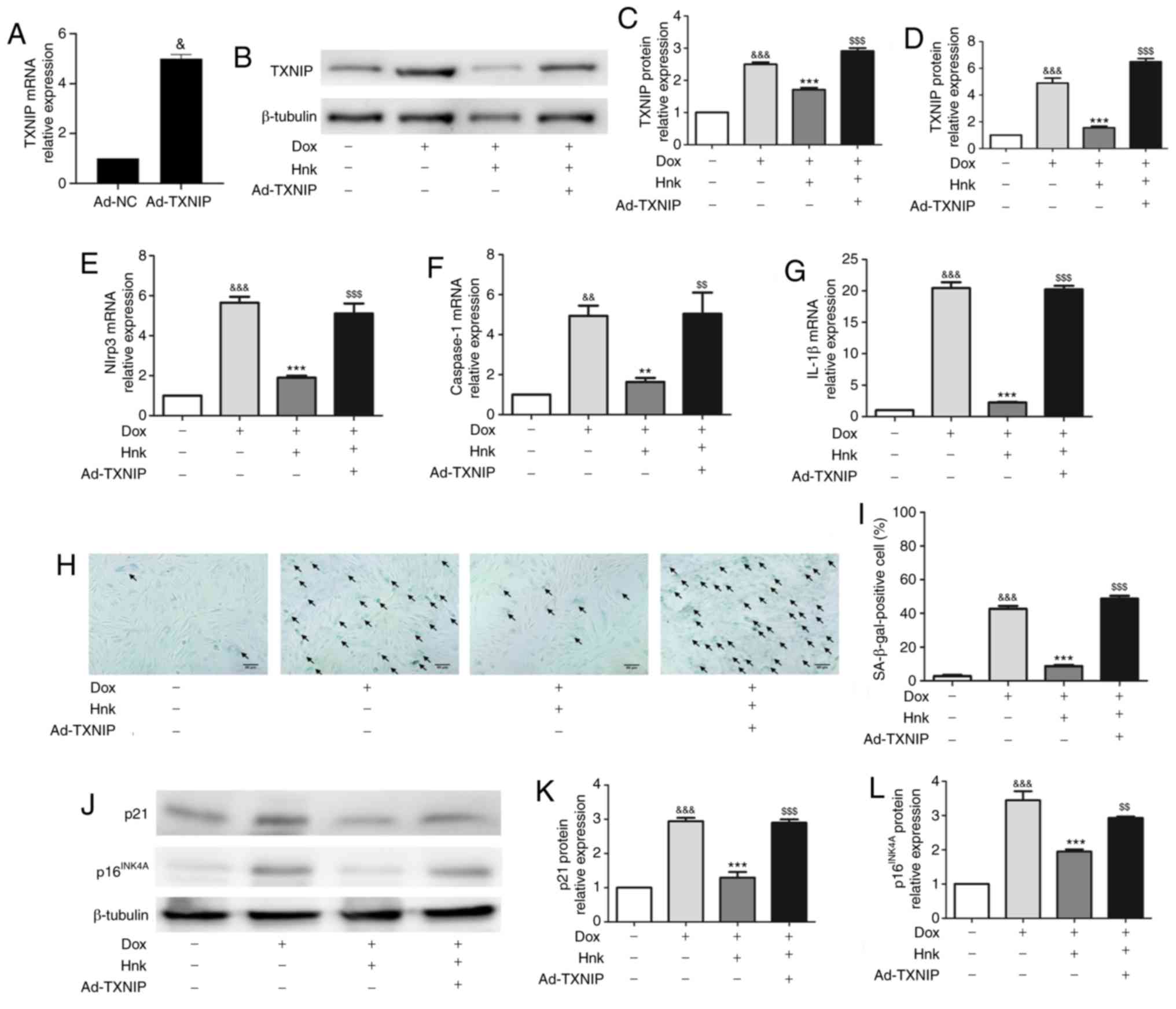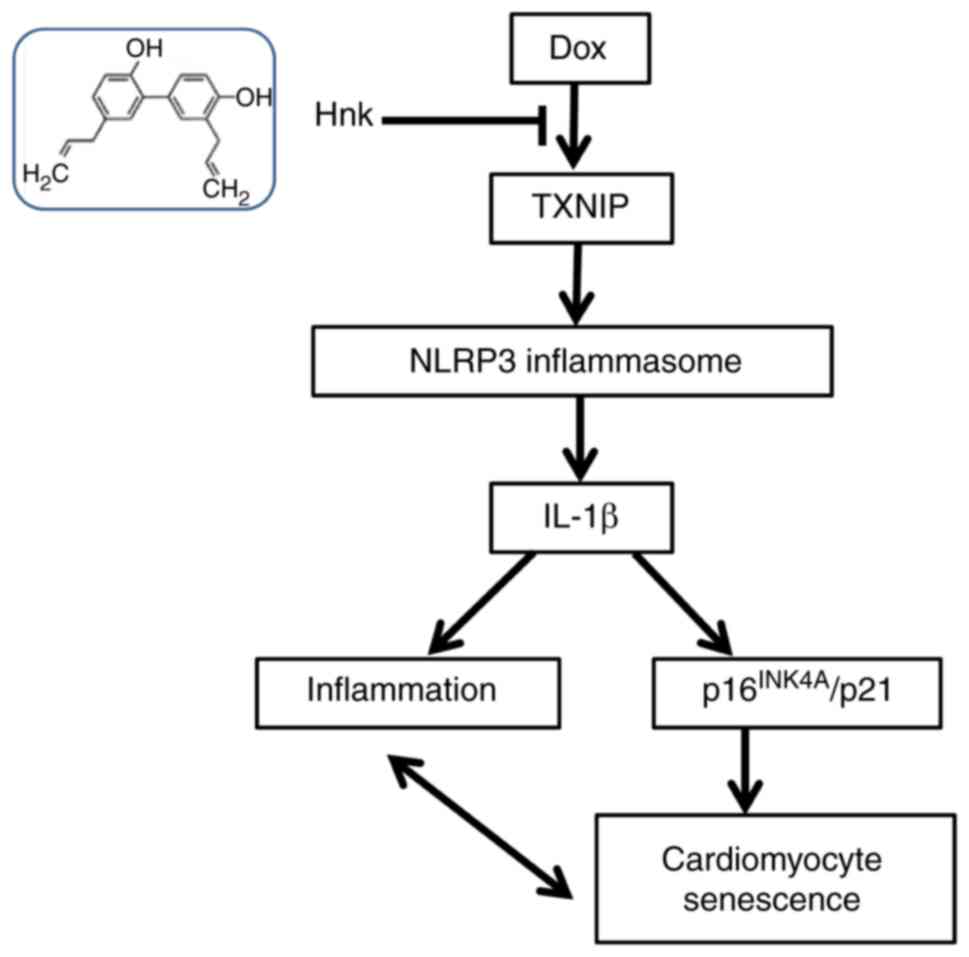|
1
|
Octavia Y, Tocchetti CG, Gabrielson KL,
Janssens S, Crijns HJ and Moens AL: Doxorubicin-induced
cardiomyopathy: From molecular mechanisms to therapeutic
strategies. J Mol Cell Cardiol. 52:1213–1225. 2012. View Article : Google Scholar : PubMed/NCBI
|
|
2
|
Yeh ET and Bickford CL: Cardiovascular
complications of cancer therapy: Incidence, pathogenesis,
diagnosis, and management. J Am Coll Cardiol. 53:2231–2247. 2009.
View Article : Google Scholar : PubMed/NCBI
|
|
3
|
Hahn VS, Lenihan DJ and Ky B: Cancer
therapy-induced cardiotoxicity: Basic mechanisms and potential
cardioprotective therapies. J Am Heart Assoc. 3:e0006652014.
View Article : Google Scholar : PubMed/NCBI
|
|
4
|
Tocchetti CG, Carpi A, Coppola C,
Quintavalle C, Rea D, Campesan M, Arcari A, Piscopo G, Cipresso C,
Monti MG, et al: Ranolazine protects from doxorubicin-induced
oxidative stress and cardiac dysfunction. Eur J Heart Fail.
16:358–366. 2014. View
Article : Google Scholar : PubMed/NCBI
|
|
5
|
Maejima Y, Adachi S, Ito H, Hirao K and
Isobe M: Induction of premature senescence in cardiomyocytes by
doxorubicin as a novel mechanism of myocardial damage. Aging Cell.
7:125–136. 2008. View Article : Google Scholar
|
|
6
|
Sun R, Zhu B, Xiong K, Sun Y, Shi D, Chen
L, Zhang Y, Li Z and Xue L: Senescence as a novel mechanism
involved in β-adrenergic receptor mediated cardiac hypertrophy.
PLoS One. 12:e01826682017. View Article : Google Scholar
|
|
7
|
Huang C, Zhang X, Ramil JM, Rikka S, Kim
L, Lee Y, Gude NA, Thistlethwaite PA, Sussman MA, Gottlieb RA and
Gustafsson AB: Juvenile exposure to anthracyclines impairs cardiac
progenitor cell function and vascularization resulting in greater
susceptibility to stress-induced myocardial injury in adult mice.
Circulation. 121:675–683. 2010. View Article : Google Scholar : PubMed/NCBI
|
|
8
|
Piegari E, De Angelis A, Cappetta D, Russo
R, Esposito G, Costantino S, Graiani G, Frati C, Prezioso L,
Berrino L, et al: Doxorubicin induces senescence and impairs
function of human cardiac progenitor cells. Basic Res Cardiol.
108:3342013. View Article : Google Scholar : PubMed/NCBI
|
|
9
|
Baar MP, Brandt RMC, Putavet DA, Klein
JDD, Derks KWJ, Bourgeois BRM, Stryeck S, Rijksen Y, van
Willigenburg H, Feijtel DA, et al: Targeted apoptosis of senescent
cells restores tissue homeostasis in response to chemotoxicity and
aging. Cell. 169:132–147. 2017. View Article : Google Scholar : PubMed/NCBI
|
|
10
|
Pan J, Lee Y, Zhang Q, Xiong D, Wan TC,
Wang Y and You M: Honokiol decreases lung cancer metastasis through
inhibition of the STAT3 signaling pathway. Cancer Prev Res (Phila).
10:133–141. 2017. View Article : Google Scholar
|
|
11
|
Greenberg M, Urnezis P and Tian M:
Compressed mints and chewing gum containing magnolia bark extract
are effective against bacteria responsible for oral malodor. J
Agric Food Chem. 55:9465–9469. 2007. View Article : Google Scholar : PubMed/NCBI
|
|
12
|
Zhang GS, Wang RJ, Zhang HN, Zhang GP, Luo
MS and Luo JD: Effects of chronic treatment with honokiol in
spontaneously hypertensive rats. Biol Pharm Bull. 33:427–431. 2010.
View Article : Google Scholar : PubMed/NCBI
|
|
13
|
Pillai VB, Samant S, Sundaresan NR,
Raghuraman H, Kim G, Bonner MY, Arbiser JL, Walker DI, Jones DP,
Gius D and Gupta MP: Honokiol blocks and reverses cardiac
hypertrophy in mice by activating mitochondrial Sirt3. Nat Commun.
6:66562015. View Article : Google Scholar : PubMed/NCBI
|
|
14
|
Tan Z, Liu H, Song X, Ling Y, He S, Yan Y,
Yan J, Wang S, Wang X and Chen A: Honokiol post-treatment
ameliorates myocardial ischemia/reperfusion injury by enhancing
autoph-agic flux and reducing intracellular ROS production. Chem
Biol Interact. 1:82–90. 2019. View Article : Google Scholar
|
|
15
|
Huang L, Zhang K, Guo Y, Huang F, Yang K,
Chen L, Huang K, Zhang F, Long Q and Yang Q: Honokiol protects
against doxorubicin cardiotoxicity via improving mitochondrial
function in mouse hearts. Sci Rep. 7:119892017. View Article : Google Scholar : PubMed/NCBI
|
|
16
|
Zhang B, Zhai M, Li B, Liu Z, Li K, Jiang
L, Zhang M, Yi W, Yang J, Yi D, et al: Honokiol ameliorates
myocardial isch-emia/reperfusion injury in type 1 diabetic rats by
reducing oxidative stress and apoptosis through activating the
SIRT1-Nrf2 signaling pathway. Oxid Med Cell Longev.
2018:31598012018.
|
|
17
|
Costa A, Facchini G, Pinheiro A, da Silva
MS, Bonner MY, Arbiser J and Eberlin S: Honokiol protects skin
cells against inflammation, collagenolysis, apoptosis, and
senescence caused by cigarette smoke damage. Int J Dermatol.
56:754–761. 2017. View Article : Google Scholar : PubMed/NCBI
|
|
18
|
Lamkanfi M and Dixit VM: Mechanisms and
functions of inflammasomes. Cell. 157:1013–1022. 2014. View Article : Google Scholar : PubMed/NCBI
|
|
19
|
Mangali S, Bhat A, Udumula MP, Dhar I,
Sriram D and Dhar A: Inhibition of protein kinase R protects
against palmitic acid-induced inflammation, oxidative stress, and
apoptosis through the JNK/NF-κB/NLRP3 pathway in cultured H9C2
cardiomyocytes. J Cell Biochem. 120:3651–3663. 2019. View Article : Google Scholar
|
|
20
|
Sun C, Diao Q, Lu J, Zhang Z, Wu D, Wang
X, Xie J, Zheng G, Shan Q, Fan S, et al: Purple sweet potato color
attenuated NLRP3 inflammasome by inducing autophagy to delay
endothelial senescence. J Cell Physiol. 234:5926–5939. 2019.
View Article : Google Scholar
|
|
21
|
Sun C, Fan S, Wang X, Lu J, Zhang Z, Wu D,
Shan Q and Zheng Y: Purple sweet potato color inhibits endothelial
premature senescence by blocking the NLRP3 inflammasome. J Nutr
Biochem. 26:1029–1040. 2015. View Article : Google Scholar : PubMed/NCBI
|
|
22
|
Yoshihara E, Masaki S, Matsuo Y, Chen Z,
Tian H and Yodoi J: Thioredoxin/Txnip: Redoxisome, as a redox
switch for the pathogenesis of diseases. Front Immunol. 4:5142014.
View Article : Google Scholar : PubMed/NCBI
|
|
23
|
Zark JW, Lee SH, Woo GH, Kwon HJ and Kim
DY: Downregulation of TXNIP leads to high proliferative activity
and estrogen-dependent cell growth in breast cancer. Biochem
Biophys Res Commun. 498:566–572. 2018. View Article : Google Scholar
|
|
24
|
Ji L, Wang Q, Huang F, An T, Guo F, Zhao
Y, Liu Y, He Y, Song Y and Qin G: FOXO1 overexpression attenuates
tubulointerstitial fibrosis and apoptosis in diabetic kidneys by
ameliorating oxidative injury via TXNIP-TRX. Oxid Med Cell Longev.
2019:32869282019. View Article : Google Scholar : PubMed/NCBI
|
|
25
|
Alhawiti NM, Al Mahri S, Aziz MA, Malik SS
and Mohammad S: TXNIP in metabolic regulation: Physiological role
and therapeutic outlook. Curr Drug Targets. 18:1095–1103. 2017.
View Article : Google Scholar : PubMed/NCBI
|
|
26
|
Du SQ, Wang XR, Zhu W, Ye Y, Yang JW, Ma
SM, Ji CS and Liu CZ: Acupuncture inhibits TXNIP-associated
oxidative stress and inflammation to attenuate cognitive impairment
in vascular dementia rats. CNS Neurosci Ther. 24:39–46. 2018.
View Article : Google Scholar
|
|
27
|
Yin Y, Zhou Z, Liu W, Chang Q, Sun G and
Dai Y: Vascular endothelial cells senescence is associated with
NOD-like receptor family pyrin domain-containing 3 (NLRP3)
inflammasome activation via reactive oxygen species
(ROS)/thioredoxin-interacting protein (TXNIP) pathway. Int J
Biochem Cell Biol. 84:22–34. 2017. View Article : Google Scholar : PubMed/NCBI
|
|
28
|
Huy H, Song HY, Kim MJ, Kim WS, Kim DO,
Byun JE, Lee J, Park YJ, Kim TD, Yoon SR, et al: TXNIP regulates
AKT-mediated cellular senescence by direct interaction under
glucose-mediated metabolic stress. Aging Cell. 17:e128362018.
View Article : Google Scholar : PubMed/NCBI
|
|
29
|
Zhuo de X, Niu XH, Chen YC, Xin DQ, Guo YL
and Mao ZB: Vitamin D3 up-regulated protein 1(VDUP1) is regulated
by FOXO3A and miR-17-5p at the transcriptional and
post-transcriptional levels, respectively, in senescent
fibroblasts. J Biol Chem. 285:31491–31501. 2010. View Article : Google Scholar : PubMed/NCBI
|
|
30
|
Chen J, Young ME, Chatham JC, Crossman DK,
Dell'Italia LJ and Shalev A: TXNIP regulates myocardial fatty acid
oxidation via miR-33a signaling. Am J Physiol Heart Circ Physiol.
311:H64–H75. 2016. View Article : Google Scholar : PubMed/NCBI
|
|
31
|
Otaki Y, Takahashi H, Watanabe T, Funayama
A, Netsu S, Honda Y, Narumi T, Kadowaki S, Hasegawa H, Honda S, et
al: HECT-Type ubiquitin E3 ligase ITCH interacts with
thioredoxin-interacting protein and ameliorates reactive oxygen
species-induced cardio-toxicity. J Am Heart Assoc. 5:e0024852016.
View Article : Google Scholar
|
|
32
|
Spallarossa P, Altieri P, Garibaldi S,
Ghigliotti G, Barisione C, Manca V, Fabbi P, Ballestrero A,
Brunelli C and Barsotti A: Matrix metalloproteinase-2 and -9 are
induced differently by doxorubicin in H9c2 cells: The role of MAP
kinases and NAD(P H oxidase. Cardiovasc Res. 69:736–745. 2006.
View Article : Google Scholar
|
|
33
|
Altieri P, Barisione C, Lazzarini E,
Garuti A, Bezante GP, Canepa M, Spallarossa P, Tocchetti CG,
Bollini S, Brunelli C and Ameri P: Testosterone antagonizes
doxorubicin-induced senescence of cardiomyocytes. J Am Heart Assoc.
5:e0023832016. View Article : Google Scholar : PubMed/NCBI
|
|
34
|
Spallarossa P, Altieri P, Aloi C,
Garibaldi S, Barisione C, Ghigliotti G, Fugazza G, Barsotti A and
Brunelli C: Doxorubicin induces senescence or apoptosis in rat
neonatal cardiomyocytes by regulating the expression levels of the
telomere binding factors 1-2. Am J Physiol Heart Circ Physiol.
297:H2169–H2181. 2009. View Article : Google Scholar : PubMed/NCBI
|
|
35
|
Bernardes de Jesus B and Blasco MA:
Assessing cell and organ senescence biomarkers. Circ Res.
111:97–109. 2012. View Article : Google Scholar : PubMed/NCBI
|
|
36
|
Livak KJ and Schmittgen TD: Analysis of
relative gene expression data using real-time quantitative PCR and
the 2(-Delta Delta C(T)) method. Methods. 25:402–408. 2001.
View Article : Google Scholar
|
|
37
|
Zhang XL, Ji XT, Sun B, Qian LL, Hu XL,
Lou HX and Yuan HQ: Anti-cancer effect of marchantin C via inducing
lung cancer cellular senescence associated with less secretory
phenotype. Biochim Biophys Acta Gen Subj. 1863:1443–1457. 2019.
View Article : Google Scholar : PubMed/NCBI
|
|
38
|
Zhao Y, Guo Q, Zhu Q, Tan R, Bai D, Bu X,
Lin B, Zhao K, Pan C, Chen H and Lu N: Flavonoid VI-16 protects
against DSS-induced colitis by inhibiting Txnip-dependent NLRP3
inflammasome activation in macrophages via reducing oxidative
stress. Mucosal Immunol. 12:1150–1163. 2019. View Article : Google Scholar : PubMed/NCBI
|
|
39
|
Angelis De A, Piegari E, Cappetta D,
Marino L, Filippelli A, Berrino L, Ferreira-Martins J, Zheng H,
Hosoda T, Rota M, et al: Anthracycline cardiomyopathy is mediated
by depletion of the cardiac stem cell pool and is rescued by
restoration of progenitor cell function. Circulation. 121:276–292.
2010. View Article : Google Scholar
|
|
40
|
Sengupta S, Nagalingam A, Muniraj N,
Bonner MY, Mistriotis P, Afthinos A, Kuppusamy P, Lanoue D, Cho S,
Korangath P, et al: Activation of tumor suppressor LKB1 by honokiol
abrogates cancer stem-like phenotype in breast cancer via
inhibition of oncogenic Stat3. Oncogene. 36:5709–5721. 2017.
View Article : Google Scholar : PubMed/NCBI
|
|
41
|
Sungnoon R and Chattipakorn N:
Anti-arrhythmic effects of herbal medicine. Indian Heart J.
57:109–113. 2005.PubMed/NCBI
|
|
42
|
Wu H, Yin Z, Wang L, Li F and Qiu Y:
Honokiol improved chondrogenesis and suppressed inflammation in
human umbilical cord derived mesenchymal stem cells via blocking
nuclear factor-κB pathway. BMC Cell Biol. 18:292017. View Article : Google Scholar
|
|
43
|
Tang P, Gu JM, Xie ZA, Gu Y, Jie ZW, Huang
KM, Wang JY, Fan SW, Jiang XS and Hu ZJ: Honokiol alleviates the
degeneration of intervertebral disc via suppressing the activation
of TXNIP-NLRP3 inflammasome signal pathway. Free Radic Biol Med.
120:368–379. 2018. View Article : Google Scholar : PubMed/NCBI
|
|
44
|
Minguzzi M, Cetrullo S, D'Adamo S,
Silvestri Y, Flamigni F and Borzi RM: Emerging players at the
intersection of chon-drocyte loss of maturational arrest, oxidative
stress, senescence and low-grade inflammation in osteoarthritis.
Oxid Med Cell Longev. 2018:30752932018. View Article : Google Scholar
|
|
45
|
Del Pinto R and Ferri C:
Inflammation-Accelerated senescence and the cardiovascular system:
Mechanisms and perspectives. Int J Mol Sci. 19:E37012018.
View Article : Google Scholar : PubMed/NCBI
|
|
46
|
Cordero MD, Williams MR and Ryffel B:
AMP-activated protein kinase regulation of the NLRP3 inflammasome
during aging. Trends Endocrinol Metab. 29:8–17. 2018. View Article : Google Scholar
|
|
47
|
Schroder K, Zhou R and Tschopp J: The
NLRP3 inflammasome: A sensor for metabolic danger? Science.
327:296–300. 2010. View Article : Google Scholar : PubMed/NCBI
|
|
48
|
Davis BK and Ting JP: NLRP3 has a sweet
tooth. Nat Immunol. 11:105–106. 2010. View Article : Google Scholar : PubMed/NCBI
|















